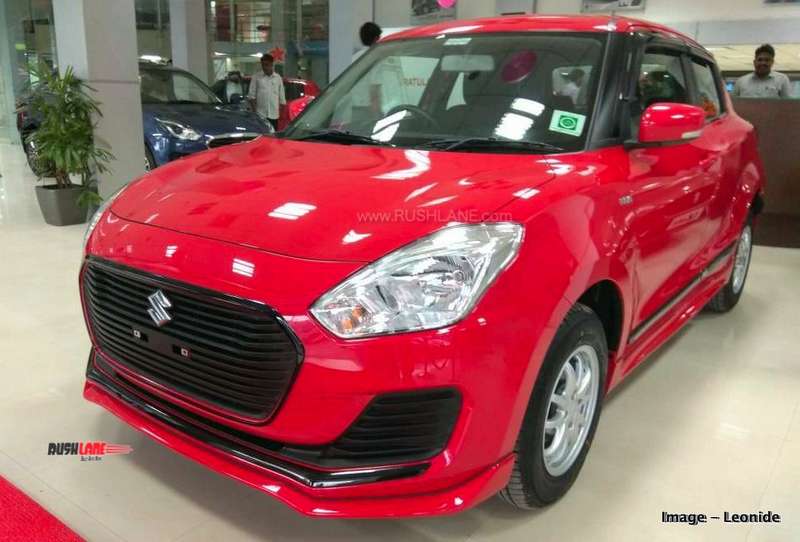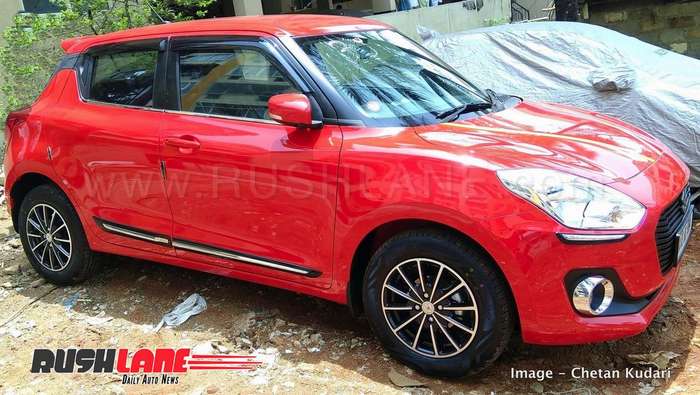
Launched back in Jan 2018, the new Maruti Swift did not take much time to rule the sales charts. For May 2019, it is the best selling car of India. Offered in petrol and diesel engine options, Maruti Suzuki India has now updated the Swift to meet upcoming Bharat NCAP safety norms.
The safety compliant Maruti Suzuki Swift, both petrol and diesel are now compliant with AIS-145 Safety standards. Additionally, Swift petrol is now BS6 compliant. The updates warrant a price hike across all Swift variants. Based on features across variants, ex-sh price in Delhi and NCR region varies from Rs. 5,14,000/- to Rs. 8,89,000/-. This is about Rs 15,000 more than the existing Swift.
Maruti Swift petrol BS6 is 1.2 liter engine delivering 83 PS and 114 Nm via 5 speed MT or AMT. Diesel variant is still BS4. It is powered by 1.3 liter engine, delivering 75 PS power and 190 Nm torque via 5 speed MT or AMT.

With the industry forlorn, and left grappling with steady stock, it’s a time great uncertainty. That also makes it a great time for vehicle launches and price revisions. Considering the market situation isn’t likely to change anytime too soon, or too rapidly, manufacturers are already working in accordance to mandates that are soon to be enforced. The first of them are adherence to safety norms, and then there’s the upgradation to BSVI norms, all of which has to be completed by the end of the ongoing fiscal.
Introduction of BSVI, unlike BSIV, will not be a phase wise phenomenon, and India as a country will embrace BSVI at the end of the fiscal. Which would mean over the next few months, manufacturers will stop manufacturing BSVI vehicles, and introduce BSVI variants. This also open sup the opportunity of buying BSIV vehicles at a discount wherever stock is available.
While manufacturers have been prepping for BSVI transition, there’s less clarity on when fuel stations will be ready to supply BSVI fuel in entirety. The move is compliant with safer and greener emission. The transition to a BSVI engine introduces a diesel particulate filter (DPF) and urea injection (to reduce nitrous oxide emissions).
There’s also the choice of not using a selective catalytic reduction (SCR) (Urea Injection) method but using Lean NOx Trap (LNT) method to meet BSVI regulations. For the potential of BSVI fuel to be realised, one needs to drive a BSVI vehicle. The additional parts also increase vehicle weight, and thereby effect fuel efficiency.
As Maruti Suzuki battles air pollution with BSVI transition, Maruti Swift continues to be a popular car for the brand. Maruti Suzuki Swift sales last month surpassed 17k units. Keeping in mind the vehicle commands a fair waiting time, it’s now possible that current bookings are converted to Maruti Suzuki Swift BSVI purchases.

